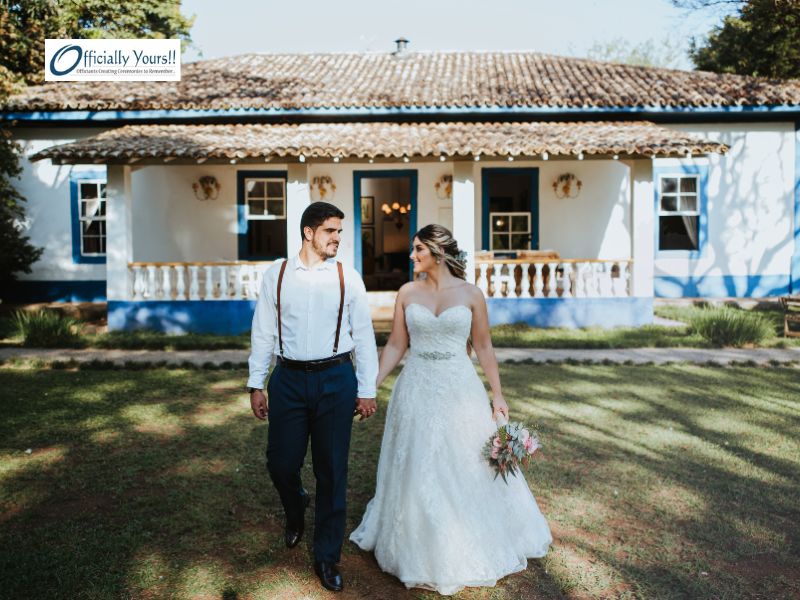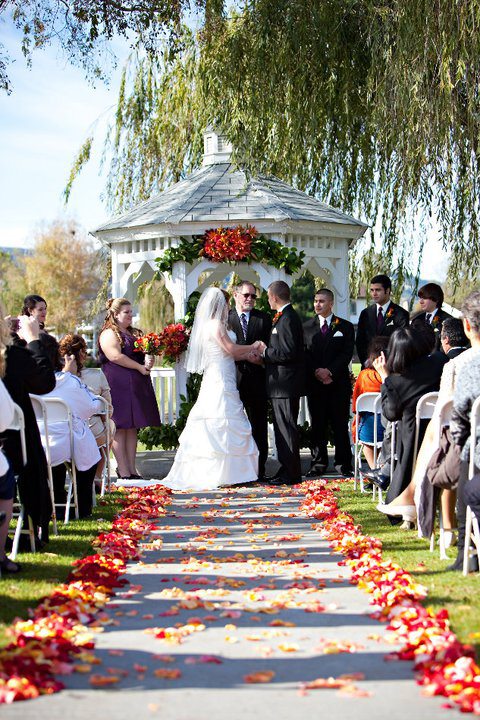Is Eloping the Same as Having a Wedding Ceremony?
Eloping has long carried a certain mystique and set of stereotypes, but in today’s world it’s a choice that more couples consider for practical, personal, or romantic reasons. When we compare elopement vs traditional wedding, the differences often come down to intent, scale, and meaning. This post explores what eloping is, how it contrasts with a traditional wedding, and why some couples find elopement a more authentic reflection of their commitment.
Introduction: Redefining the idea of a wedding
Traditionally, weddings have been large social events with a ceremony, a reception, and many guests. Elopement, by contrast, is often celebrated as a private, intimate moment between two people (and sometimes a few witnesses). The central question, Is eloping the same as having a wedding ceremony?, deserves nuance. While both involve vows and a commitment to start a life together, the experience, planning process, and social expectations can differ dramatically. In this article, we’ll compare elopement vs traditional wedding, highlight common motivations, and offer guidance for couples weighing their options.
What is elopement?
Elopement originally referred to a couple running away to marry, sometimes to avoid parental or societal pressure. Modern elopement has evolved into a meaningful, intentionally private ceremony, often with a short, legally binding exchange of vows in a location that feels significant to the couple. Key characteristics of elopement include:
- Intimate guest count (often just the couple and an officiant, or a tiny handful of close witnesses)
- Focus on the couple rather than a large party
- Simplicity in planning and often cost-effective
- Location variety, from seaside cliffs to city halls to mountain tops Elopement emphasizes personal connection and the act of committing to each other in a setting that resonates with both partners.
What is a traditional wedding?
A traditional wedding tends to be a larger, more formal affair that includes several planned components: a ceremony, a reception, and, frequently, a significant guest list. Common elements of a traditional wedding include:
- A ceremonial venue with decor, music, and ritual
- A full guest list, sometimes 100–300 or more attendees
- A reception with food, toasts, and dancing
- Extensive planning timelines, vendor coordination, and budgets
- Cultural or familial customs woven into the ceremony and celebration For many couples, a traditional wedding serves as a shared social milestone, a way to involve family and friends, and a day that’s photographically commemorated for generations.
Elopement vs traditional wedding: Key differences
- Scale and scope: Elopements are intimate by design, while traditional weddings are expansive social events.
- Planning timeline: Elopements can be organized quickly, whereas traditional weddings often require months or years of planning.
- Budget dynamics: Elopements frequently cost less, allowing funds to be allocated to experiences, honeymoons, or future goals. Traditional weddings can involve substantial vendors, venues, and décor expenses.
- Social expectations: Eloping may minimize external pressures and familial expectations; traditional weddings often come with family traditions and obligations.
- Personal meaning: For some couples, eloping foregrounds spontaneity, adventure, or privacy; for others, a traditional ceremony foregrounds community, ritual, and shared celebration with loved ones.
Why couples choose elopement
- Personal preference: A desire for an intimate, low-stress ceremony.
- Budget priorities: Redirecting funds to travel, a home, or savings rather than a large event.
- Privacy and authenticity: A wish to exchange vows in a meaningful setting without distraction.
- Simplicity and spontaneity: A chance to focus on the moment rather than logistics.
- An alternative to traditional family dynamics: Avoiding pressure or expectations around guest lists or performances.
Why couples choose a traditional wedding
- Community and celebration: A wish to share the moment with friends and family.
- Cultural or religious significance: Traditions and rituals that require a larger gathering.
- Photographic legacy: A day designed for expansive moments, speeches, dances, and formal attire.
- Hospitality and experience: A reception with food, music, and toasts that create lasting memories.
- Symbolic rituals: The exchange of rings, vows, and other ceremonial elements that feel meaningful when performed publicly.
Legal and logistical considerations
- Legal requirements: Both elopements and traditional weddings require meeting local marriage license requirements, which vary by location.
- Documentation: Ensure you have the necessary IDs, licenses, and officiant credentials.
- Location permits: If eloping in a remote or public place, check permits or access rules.
- Insurance and contingency planning: For outdoor or travel-based elopements, have plans for weather, travel delays, and safety.
- Witnesses and officiants: Some jurisdictions require witnesses; others do not. An officiant can be a friend, family member, or professional.
Planning tips for choosing between elopement vs traditional wedding
- Align with values: Consider what you want more, intimacy or shared community.
- Set a practical budget: Decide what matters most, venue, guest experience, or travel.
- Consider future implications: How will your choice affect family dynamics, anniversaries, and photo albums?
- Think about memory-making: Will you prioritize a grand reception, or a private moment that you will remember forever?
- Hybrid options: Some couples opt for a small, elopement-style ceremony with a larger reception later, blending elements of both approaches.
Final thoughts: Making a choice that feels right
Is eloping the same as having a wedding ceremony? Not exactly. Both paths culminate in a commitment to a life together, but they differ in experience, scale, and social dynamics. Elopement vs traditional wedding ultimately come down to personal preference and practical considerations. The best choice is the one that truly reflects who you are as a couple and marks the start of your journey together in a way that feels authentic, meaningful, and enjoyable.
Contact A Simple Elopement for more information on Elopements!
Visit our main blog page for more interesting articles



Follow Us!